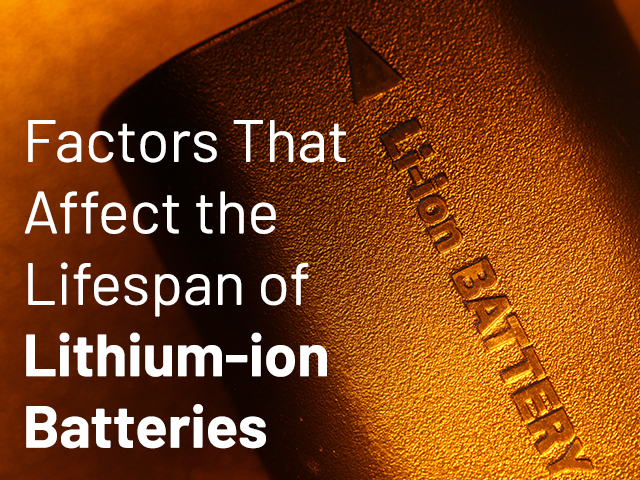
From smartphones to satellites, lithium-ion batteries can be found in electronics across numerous industries, and new applications for them are still being developed. Though lithium-ion batteries are versatile and durable, several factors can affect their longevity.
Extreme Temperatures
Significant heat can damage several components of lithium-ion batteries and lead to dangerous conditions, including an explosion or fire. Similarly, if a lithium-ion battery is charged to a voltage that is above its rating, this can cause thermal runaway and capacity loss. Also, cold temperatures can cause the inner electrolyte to lose fluidity or freeze completely, resulting in decreased power output and inefficient recharging.
Protective Coatings
The metal covering on a lithium-ion battery’s cathode can react with the battery’s electrolyte at higher temperatures and voltages, which results in added degradation over time. The oxygen created by this connection also creates an obstructive film over the cathode, further wasting energy. Advanced conductive coatings use multilayer fuse protection to combat adverse reactions while improving battery life and hardiness in various environments. These products are often composed of specially developed polymers that resist corrosion.
Charging Cycles
Frequently charging a lithium-ion battery before using most of its capacity can decrease its lifespan. Only recharging the battery to 50% or less of its capacity will have a similar effect. Each charging cycle will degrade the battery due to buildup on its electrodes. To prolong a lithium-ion battery’s efficiency, users should wait to recharge until it is close to being depleted.
Time in Use
Like any other battery, lithium-ion batteries lose some of their capacity over time. Regular use and recharging take a toll on the battery’s components. Users should expect their batteries to have lifespans of about 500 charging cycles. Depending on the frequency of use, this typically works out to two or three years.
Transcontinental Advanced Coatings is proud to offer sustainable, high-performance product lines and solutions, including coatings and films for lithium-ion batteries. With state-of-the-art facilities in the United States, Europe, and China, we are committed to quality and providing clients across the globe with unparalleled customer service. For more information about our products and capabilities, fill out our online form today.